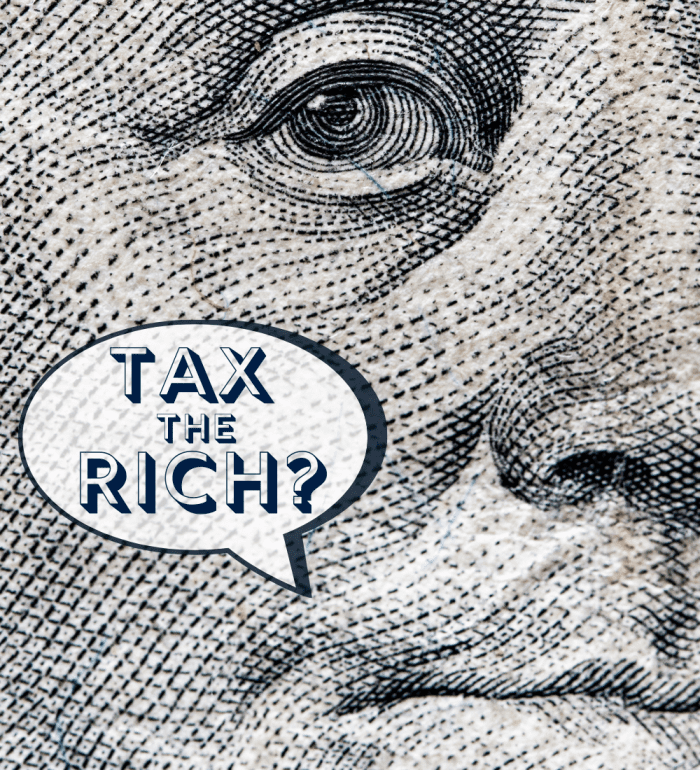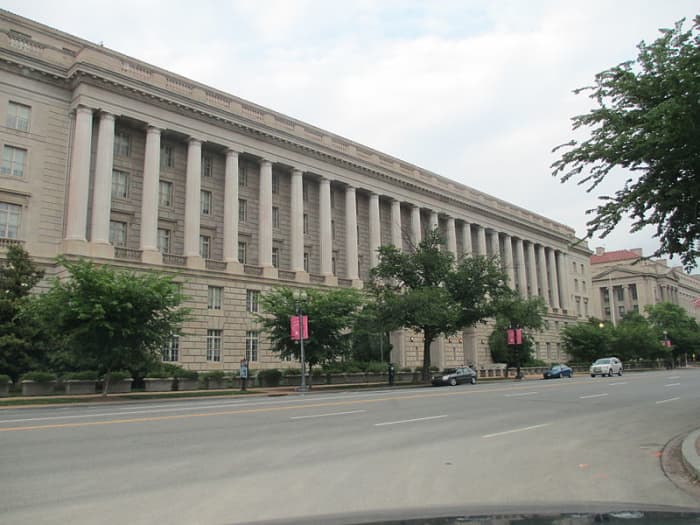Pros and Cons of Taxes Should Continue T Be on a Graduated System With Wealthy Citizens Paying More
Should We Raise Taxes on the Rich? Pros and Cons
Paul studied philosophy at the University of Leicester, UK, and has done a variety of jobs since, including advocate, librarian, and writer.

Should we raise taxes on the rich?
Sahand Hoseini via Unsplash; Canva
Should We Raise Taxes for the Wealthy?
Should we tax the rich? How much should they be taxed?
In the US and across the world, there is an ongoing discussion about how much tax the wealthy should pay. People debate whether or not taxes should be increased for the richest 1%.
As economic problems have intensified in recent years, so has the debate. The people on the left of politics generally want higher taxes for the wealthy, insisting that the richest 1% can easily afford to make a larger contribution. Whereas people on the political right generally argue that increasing taxes for higher earners is counterproductive and may actually worsen inequality rather than solve it.
Below, you'll find the pros and cons of raising taxes on the rich. I've done my best to be fair to arguments from both sides of this heated debate.
Seven Reasons Why We Should Raise Taxes on the Rich
- When economic times are tough, the government needs to look for ways to bring in more money. Increasing taxes on the wealthy makes sense, as they are the ones who are most able to afford tax increases. The people who have benefitted the most from the economy should support programs that help the poorest.
- A progressive tax system can prevent wealth discrepancies from getting too large. When the gap between rich and poor gets beyond a certain point, there is an increased risk of social instability and strife, such as crime and political turmoil. Extreme differences in wealth are also seen by many economists as one of the factors that led to the Wall Street Crash in 1929.
- Taxing the rich can also be justified on moral grounds, if it is used as a form of wealth redistribution, with the tax money raised being used to aid the poorest sections of the population.
- Because income from wealth is taxed less than income from work, wealthy taxpayers use many generous tax benefits (like delayed or defrayed taxes on inheritance or capital gains) to drastically lower their taxes. Expanding the types of incomes considered "taxable" would help offset this imbalance, and adjusting these preferences would make the tax code more progressive.
- There is evidence to show that economic growth can occur despite a raise in taxes. Countries such as Australia, Sweden, and Canada all do well in terms of economic growth despite requiring high taxes.
- Since the 1970s, the incomes of the wealthiest members of society have increased dramatically, while the income levels for the rest of society have barely changed in real terms. Since the 1980s, those at the very top have seen the fastest growth in income. This means that adjustments need to be made.
- Money is needed to pay for defense, health, education, social security, etc., and it has to come from somewhere.
Why is it that if you take advantage of a corporate tax break, you're a smart businessman, but if you take advantage of something so you don't go hungry, you're a moocher?
— Jon Stewart
Six Reasons Why the Rich Should Not Be Taxed More
- Governments already waste much of the money that they collect. If taxes are increased, all that will happen is that the government will just have more money to waste and there will still be no incentive for them to spend efficiently.
- The raising of taxes acts as a disincentive for individuals and businesses to make money. Some of the most talented people and businesses will leave the country and find somewhere with lower taxes if they feel that their efforts are not being sufficiently rewarded.
- People argue that raised taxes have slowed the economy and led to market stagnation.
- There are numerous examples of how cutting taxes for businesses actually increase overall revenue. Increasing taxes, on the other hand, just makes businesses alter their investment, spending, and tax behaviors in order to find ways of cutting their tax expenditure, which generally leads to an overall decrease in revenue for the government.
- Higher taxes inevitably lead to a reduction in investment, as the people most likely to invest have their money supply hit. If there is less investment, then there are fewer businesses, and unemployment increases. With more people out of work, there is less money being spent, and the economy goes into a downward spiral.
- Increasing taxes for the wealthiest segment of society is socially divisive and encourages a class war situation where the poor and middle class begin to resent the rich, and the rich, who find themselves paying an increasing share of the tax bill, resent the poor and the middle class in return.
Scroll to Continue
Read More From Soapboxie
We don't need new taxes. We need new taxpayers, people that are gainfully employed, making money and paying into the tax system. And then we need a government that has the discipline to take that additional revenue and use it to pay down the debt and never grow it again.
— Marco Rubio
A Brief History of Taxes in the US
- 1760s: The American Revolution is kickstarted by a rebellion against the British taxation policy.
- 1770s: The newly independent US collects taxes on imports ("tariffs"), whiskey, and (for a time) glass windows.
- 1800s: States and localities introduce a poll tax (which applies to voters) and a tax on property.
- 1900s: State and federal inheritance taxes start after 1900.
- 1930s: States impose sales taxes in the 1930s.
- 1913: Income taxes are imposed temporarily during the Civil War, but it is not until 1913 that they are brought in on an indefinite basis.
What is the difference between a taxidermist and a tax collector? The taxidermist takes only your skin.
— Mark Twain

IRS building in Washington D.C. The people against tax rises for the rich argue that government departments already waste much of the tax revenue raised. Increasing taxes would just create more waste and make investment less appealing.
Joshua Doubek via Wikimedia Commons (CC BY-SA 3.0)
We contend that for a nation to try to tax itself into prosperity is like a man standing in a bucket and trying to lift himself up by the handle.
— Winston Churchill
This content is accurate and true to the best of the author's knowledge and is not meant to substitute for formal and individualized advice from a qualified professional.
Questions & Answers
Question: Can higher taxes contribute to a fairer society?
Answer: Proponents argue that progressive taxes are an effective method for redistributing wealth and creating a fairer society through reducing financial disparities. Opponents argue that higher taxes unfairly penalize earners, act as a disincentive, and reduce the amount of money that businesses can reinvest.
© 2011 Paul Goodman
Related Articles
Source: https://soapboxie.com/government/Should-we-tax-the-rich-more-pros-and-cons
0 Response to "Pros and Cons of Taxes Should Continue T Be on a Graduated System With Wealthy Citizens Paying More"
Post a Comment